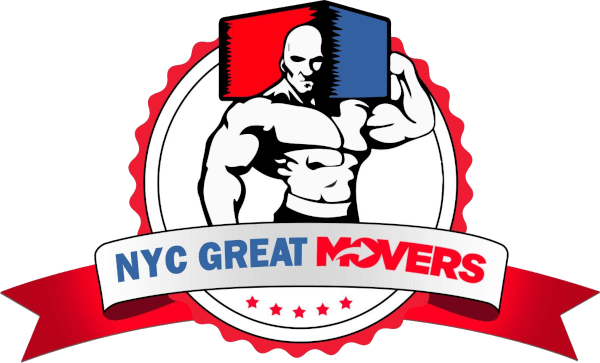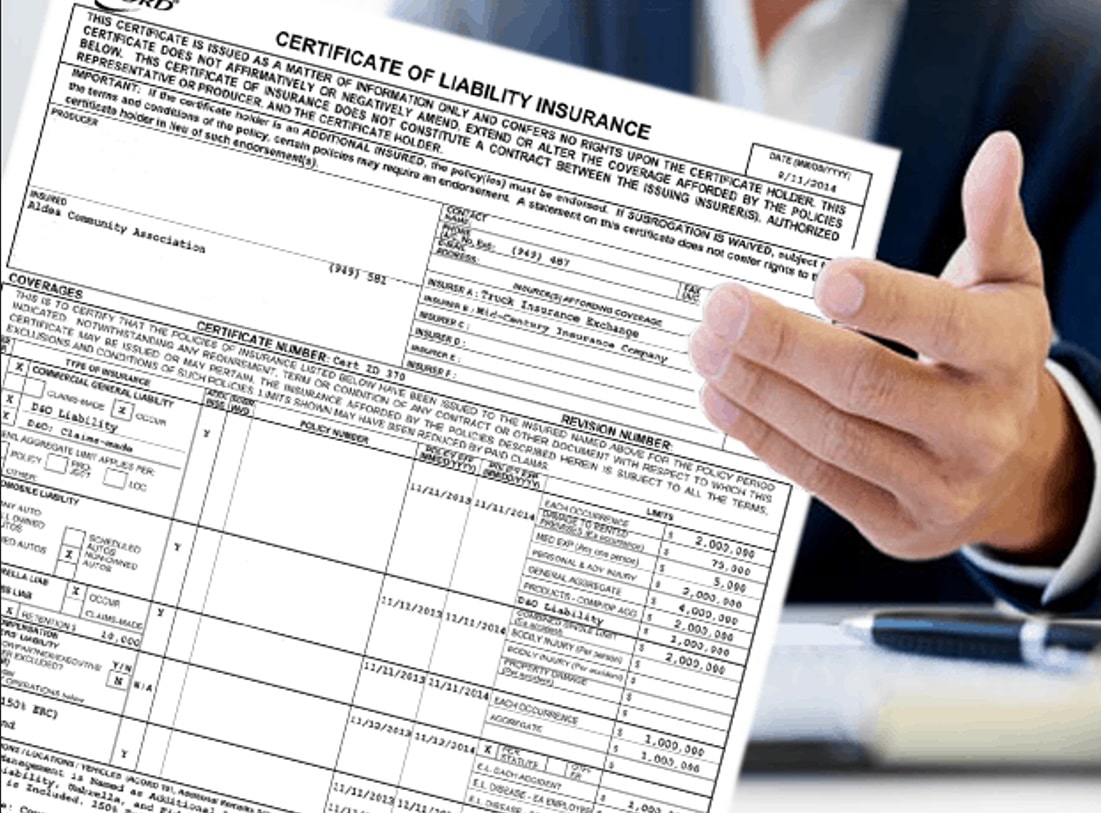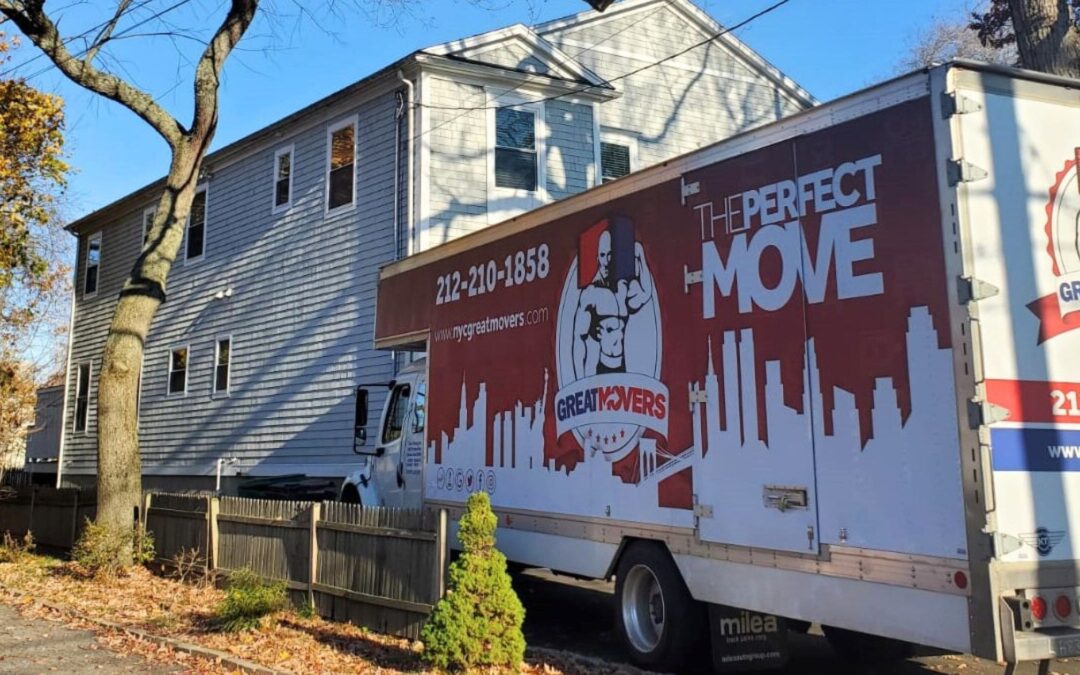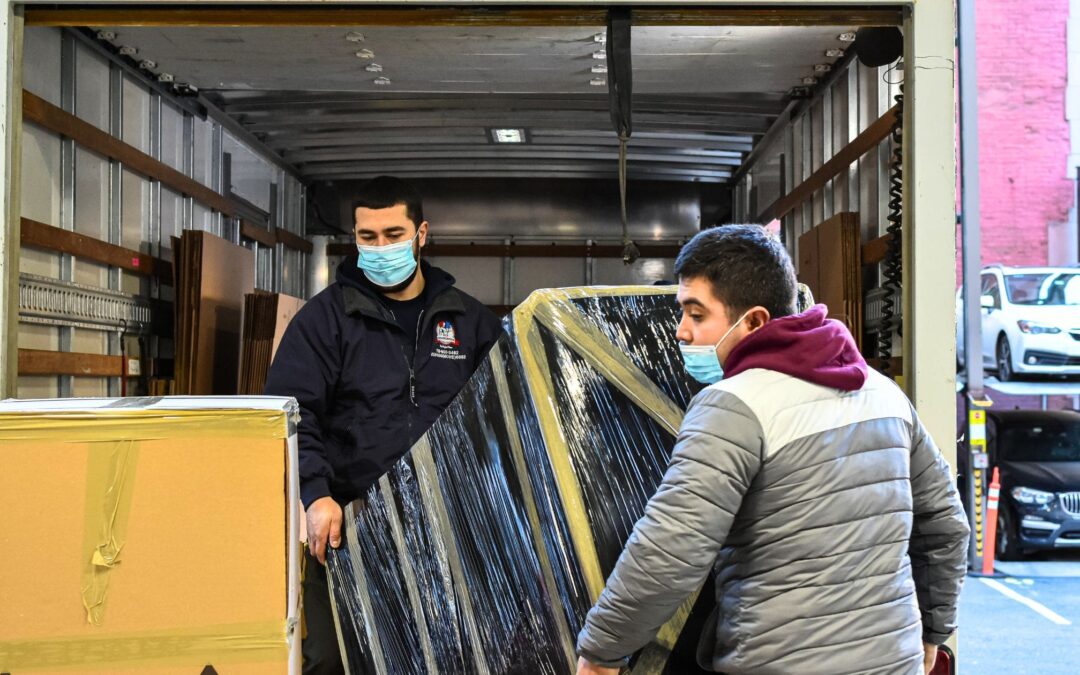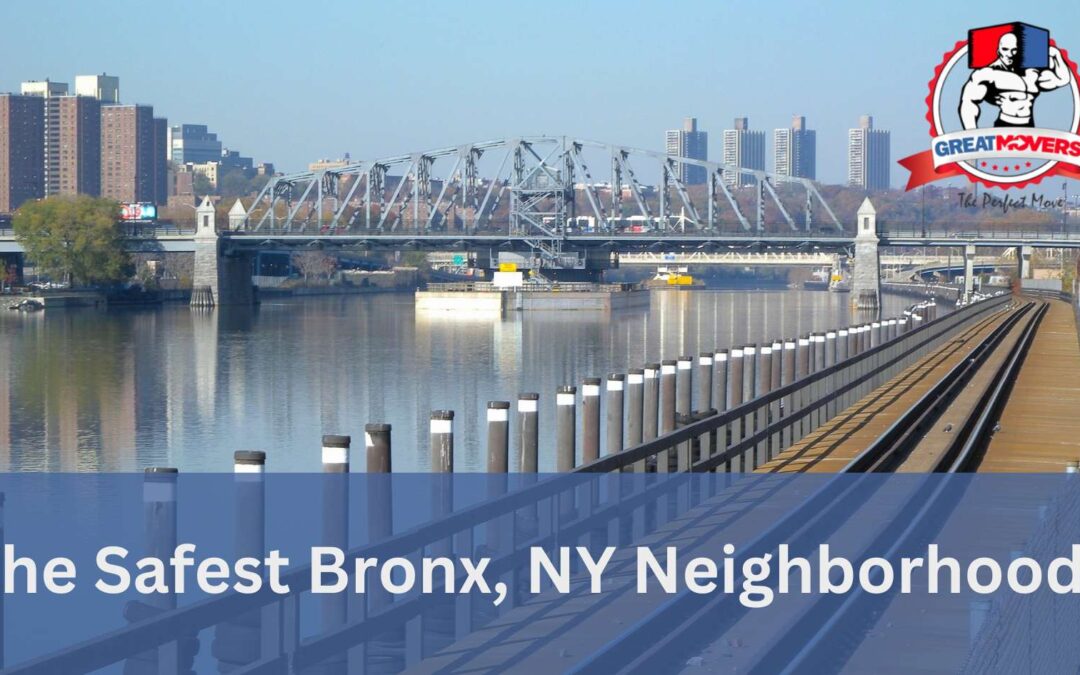Unless you have worked in the moving industry before, there’s probably a lot of lingo and acronyms you’ll hear that you won’t be familiar with. One such acronym is COI or certificate of insurance. Chances are, you probably won’t hear this acronym unless you are moving to or from an apartment building. So what is a COI, and how do you get one? If you’ve chosen a reputable CT moving company, it shouldn’t be too complicated. Still, there are a few things to consider.
What Is a Moving Certificate of Insurance?
If you’re moving into an apartment complex or newer housing development, the property manager might request a COI. This document provides evidence of liability insurance and workers’ compensation. The liability insurance protects the building in case of damage, while workers’ compensation provides payment to workers who were injured on the job.
Typical Liability Coverage Requirements by Building Type
| Building Type | Typical COI Requirement ($) | % of Buildings That Require COI | Avg Approval Time (Days) | Notes |
|---|---|---|---|---|
| Standard Apartment | $1,000,000 | 70% | 2–3 | Most mid-size NYC/CT complexes |
| Luxury Apartment | $5,000,000–$10,000,000 | 20% | 5–7 | Stricter requirements, often add “additional insured” |
| Commercial Office | $2,000,000–$5,000,000 | 50% | 3–5 | Elevator reservation usually tied to COI |
| Co-ops / Condos | $1,000,000–$2,000,000 | 40% | 2–4 | Often request detailed vehicle info |
All reputable CT moving companies should already be licensed and insured, so getting a COI shouldn’t be an issue. While there isn’t a standard format for a COI, it should include the following information:
- Date of issue
- An insurance agent or broker who produced the certificate
- Name and address of the business
- Liability insurance coverage
- Name of insurers
- Coverage in dollars for each policy
- Description of operations, location, and vehicles (including license plate numbers)
- Expiration date of insurance
- Signature of issuing agent
If you’re not sure whether your building requires a COI or not, reach out to the landlord or property manager and ask. Once they confirm the need for a COI, ask for a sample so you can send it along to the movers. You’ll want to start this process early, just in case the moving company needs to make any revisions to their COI.
Why is a COI Important?
Most people probably will go their whole life without having to worry about a COI. The primary reason for getting a moving COI is because your apartment complex requires it. Many apartment buildings will not let movers on-site without an approved COI. Some won’t even let you reserve an elevator without it! Unfortunately, many people don’t realize this until moving day, which can waste entire months’ worth of planning. On top of that, you would need to figure out where you can temporarily store all of your belongings in case you aren’t able to get a COI immediately. That’s just added stress and budgetary issues you don’t need to deal with!
Even if you’re moving into a house, requesting a COI from potential movers might not be a bad idea for a couple of reasons:
- It’s a good way to weed out bad moving companies – you can check the information to make sure everything lines up with what is listed online. You can also see what kind and how much coverage the company has. Top CT movers have liability insurance of at least $1 million.
- It protects you – building managers aren’t the only ones who should worry about protecting their investments. As a homeowner, you shouldn’t have to pay for any damages the movers caused to your old or new home during the move. In addition, you don’t want to be sued in case one of the crew members gets hurt on the job.
Ultimately, there’s no downside to requesting a COI even if you’re not moving into a building that requires it.
How to Request a COI
The process of getting a COI is fairly easy, so long as you are working with a good CT moving company. They will do the majority of the heavy lifting. However, there are a few things you should do:
- Contact your building management company – ask if they require a COI. If they do, request a sample document outlining everything they need. This includes details of what the additional insured section should include, as well as the contact information for the building representative.
- Submit a COI request to your mover – once you have all the information, send this along with a COI request to the mover of your choice. Try to do this as early as possible, as it might take some time for the movers to process your request. If the use of the elevators is dependent on the COI, put in the request a few weeks beforehand so you can reserve your preferred times.
- Ask for a copy of the COI – the movers you hire should send the COI directly to the building. If the building says they didn’t receive it, you can forward your copy to them. In addition, check the COI to make sure it covers the minimum amount needed by the building. Most places require a minimum of $1 million, while luxury and commercial locations might require up to $10 million!
COI Request & Approval Timeline
| Step | Action | Avg Time (Days) | Risk if Delayed |
|---|---|---|---|
| 1 | Tenant asks the building if COI is required | 1 | Movers denied access |
| 2 | Tenant sends COI request to mover | 1–2 | No elevator booking |
| 3 | Mover submits COI to the building | 1–3 | Revisions may be requested |
| 4 | Building reviews & approves | 2–5 | Moving day is blocked if late |
| 5 | Confirmation sent to the tenant | Same day | Peace of mind |
One important thing to remember is that a COI has to be accepted and approved by building management in order for the movers to get access. If you haven’t heard anything, reach out to the building manager and ask if everything is in order. Make sure to email instead of calling so you have a paper trail! That way, if there are any hiccups on moving day, you can show the email to the doorman or security personnel.
What Happens if Damage Happens on Moving Day?
Experienced movers should be able to get all of your belongings in and out of the building without issues. However, accidents do happen even with the most trained and experienced crew. To that end, it’s in your best interest to take pictures of your old and new home’s condition before and after the move. Yes, it might seem rude, but you want to document everything. That way, if there are any disputes, you can provide evidence of the damage (or no existing damage).
When you do notice the damage, make sure to let the movers know immediately. From there, it’s up to the company and property manager to address the issue. The moving company will then follow the appropriate procedure for the insurance to take effect. You shouldn’t have to pay a penny.
Prepare for Your Next Move
There are a dozen steps that you should take to make sure your next move is successful. Knowing whether you need a COI or not is something you will need to know, especially if you are moving to or from an apartment building. So long as you alert the moving company and provide all the necessary documents, your move should go seamlessly. Your best bet is to work with qualified and professional CT movers like us! Once you’ve picked a move date, contact us and we’ll walk you through the moving process.
FAQ
What if the moving company doesn’t have a COI?
Find another company. No COI is a sign that the company is most likely a scam or, at the very least, not registered properly with the state. While it might be cheaper initially, you may end up spending a lot of money replacing broken items and fixing damaged walls.
Does a COI cover damage to my belongings?
No. A COI only covers damage to the building. Your belongings are automatically covered by released value protection, which covers $0.60 per pound per item for free. However, if you are moving a lot of expensive items, it might be worth it to purchase moving insurance. That way you will be reimbursed for the estimated cost of the damaged items.
The movers sent a COI, but the building still won’t let us in. What should I do?
Call and email the building manager and management company and let them know what is happening. If they are not responding, show the necessary paperwork to the doorman/security. If nothing works, you should call the movers to see if they are able to put your belongings in short term storage. Make sure to keep all necessary documentation and records of your calls and emails to the building management company. You can try to get them to reimburse you for the cost of storage once they get back to you
